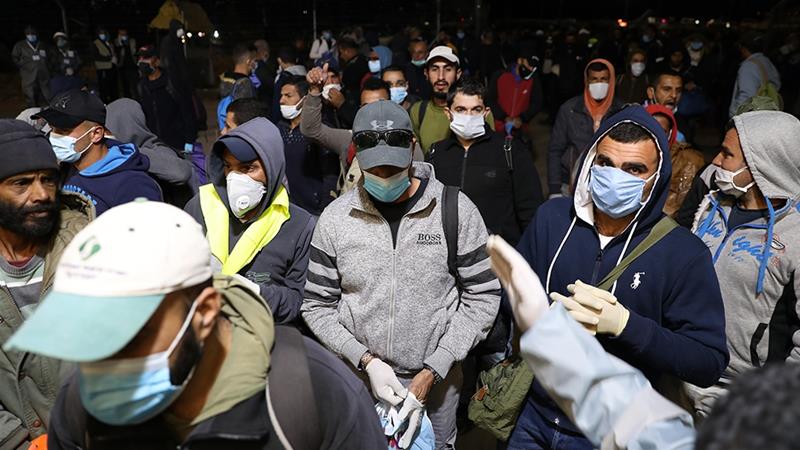Israel has reopened a number of crossings following an agreement with the Palestinian Authority (PA), in a move that allows thousands of Palestinians in the occupied West Bank seeking employment opportunities to return to work despite fears of being exposed to the new coronavirus.
The two-day opening, expected to last until Monday, will see some 40,000 Palestinians cross over for work, mostly in construction and agriculture.
The move comes in conjunction with an easing of restrictions that were in place to curb the spread of the novel coronavirus in Israel, which has so far recorded 16,185 positive cases and 229 deaths.
Meanwhile, the PA headed by Mahmoud Abbas has registered some 353 infections, many of which were believed to be contracted by workers who cross over to Israel.
Usually, they [workers] would go and come back in the same day – but after the outbreak, the agreement is that they go in and stay there.
“On the one hand … about two-thirds of the infections that happened in Palestine came from workers and those who were around them. “But also, you’re talking about a segment of Palestinian society that brings around $2.5bn in revenues each year to the PA’s weakened economy.”
Since early March, the PA has closed schools, universities and has imposed a state of emergency to ensure physical distancing was being observed – this has also led to a near-complete halt of movement.
Up to 20 percent of employed Palestinians work in Israel , The money earned is more than what they would make in the West Bank, where the unemployment rate hovers at about 30 percent – a figure among the highest in the world.
Many are forced to make a living this way as Israel’s decades-long occupation of the West Bank has left Palestinians with no control over their resources.
Despite the dangers associated with the pandemic, many Palestinians still choose to risk their lives for wages during a particularly financially challenging time.
Last month, private employers were accused of dropping off Palestinian workers who showed symptoms of COVID-19, the highly infectious disease caused by the coronavirus, at military checkpoints. They waited to be picked up by Palestinian ambulances.
The move was criticised by rights groups who accused Israeli authorities of failing to secure the safety of the workers.



